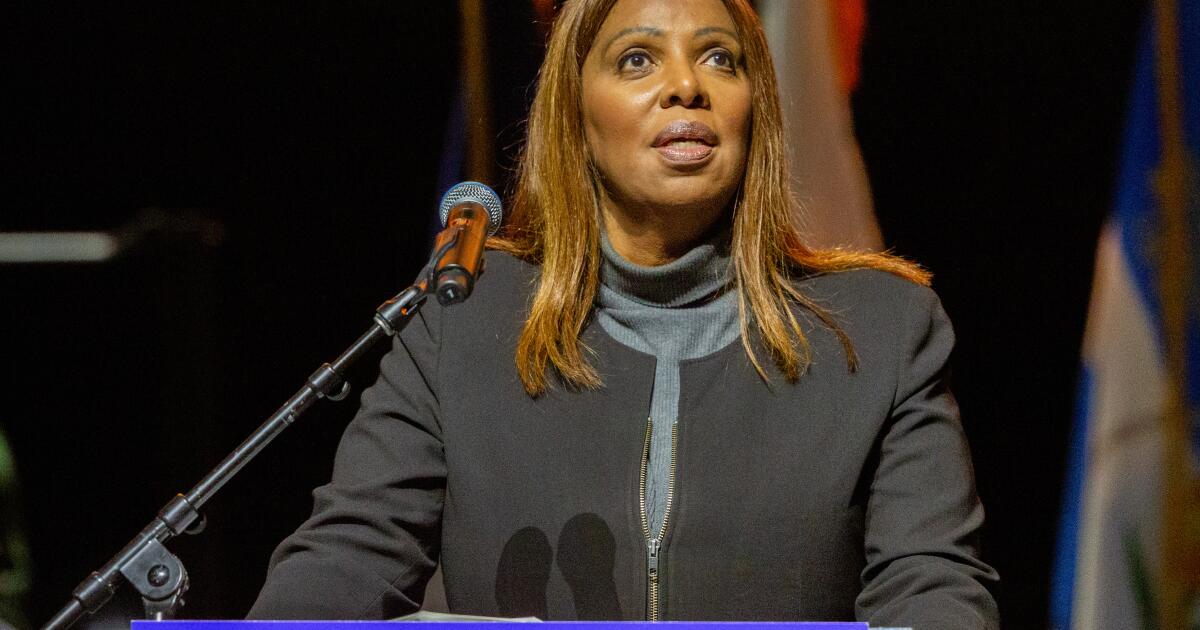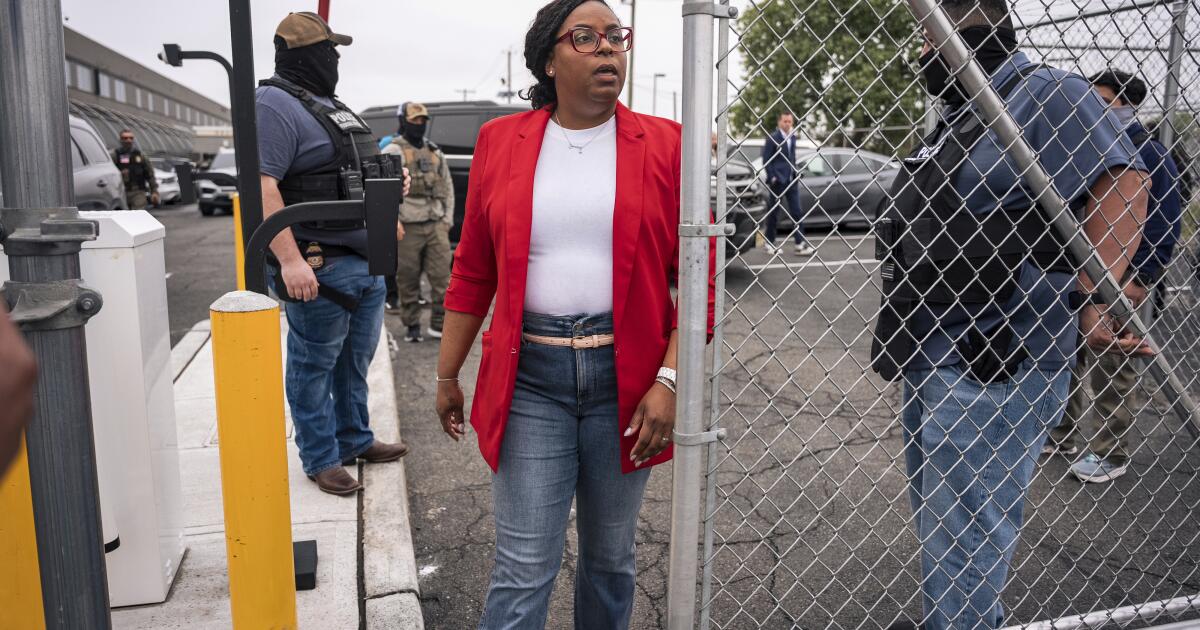New York Atty. Gen. Letitia James will make her first court appearance in mortgage fraud case
NORFOLK, Va. — New York Atty. Gen. Letitia James is set to make her first court appearance in a mortgage fraud case on Friday, the third adversary of President Trump to face a judge on federal charges in recent weeks.
James was indicted earlier this month on charges of bank fraud and making false statements to a financial institution in connection with a 2020 home purchase in Norfolk, Va. The charges came shortly after the official who had been overseeing the investigation was pushed out by the Trump administration and the Republican president publicly called on the Justice Department to take action against James and other political foes.
James, a Democrat who has sued Trump and his administration dozens of times, has denied wrongdoing and decried the indictment as “nothing more than a continuation of the president’s desperate weaponization of our justice system.”
The indictment stems from James’ purchase of a modest house in Norfolk, where she has family. During the sale, she signed a standard document called a “second home rider” in which she agreed to keep the property primarily for her “personal use and enjoyment for at least one year,” unless the lender agreed otherwise.
Rather than using the home as a second residence, the indictment alleges, James rented it out to a family of three. According to the indictment, the misrepresentation allowed James to obtain favorable loan terms not available for investment properties.
James drew Trump’s ire when she won a staggering judgment against the president and his companies in a lawsuit alleging he defrauded banks by overstating the value of his real estate holdings on financial statements. An appeals court overturned the fine, which had ballooned to more than $500 million with interest, but upheld a lower court’s finding that Trump had committed fraud.
James’ indictment followed the resignation of Erik Siebert as U.S. attorney for the Eastern District of Virginia after he resisted Trump administration pressure to bring charges. Siebert was replaced with Lindsey Halligan, a White House aide and former Trump lawyer who had never previously served as a federal prosecutor and presented James’ case to the grand jury herself.
On Thursday, lawyers for James asked for an order prohibiting prosecutors from disclosing to the news media information about the investigation, or materials from the case, outside of court.
The motion followed the revelation from earlier this week that Halligan contacted via an encrypted text messaging platform a reporter from Lawfare, a media organization that covers legal and national security issues, to discuss the James prosecution and complain about coverage of it. The reporter published the exchange that she and Halligan had.
“The exchange was a stunning disclosure of internal government information,” lawyers for James wrote.
They added: “It has been reported that Ms. Halligan has no prosecutorial experience whatsoever. But all federal prosecutors are required to know and follow the rules governing their conduct from their first day on the job, and so any lack of experience cannot excuse their violation.”
The motion also asks that the government be required to preserve all communications with representatives of the media as well as to prevent the deletion of any records or communications related to the investigation and the prosecution of the case.
Separately on Thursday, defense lawyers said they intended to challenge Halligan’s appointment, a step also taken this week by attorneys for former FBI Director James Comey in a different case filed by Halligan. Comey has been charged with lying to Congress in a criminal case filed days after Trump appeared to urge his attorney general to prosecute him, and he has pleaded not guilty.
A third Trump adversary, former national security adviser John Bolton, pleaded not guilty last week to charges against him of emailing classified information to family members and keeping top secret documents at his Maryland home.
The Justice Department has also been investigating mortgage fraud allegations against Democratic Sen. Adam Schiff of California, whom Trump has called to be prosecuted over allegations related to a property in Maryland. In a separate mortgage investigation, authorities have been probing allegations against Federal Reserve Board member Lisa Cook, who is challenging a Trump administration effort to remove her from her job. Schiff and Cook have denied wrongdoing.
Finely and Richer write for the Associated Press. Richer reported from Washington. Associated Press reporter Eric Tucker in Washington contributed to this report.


